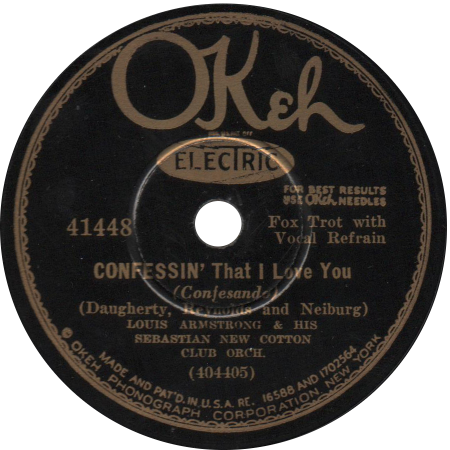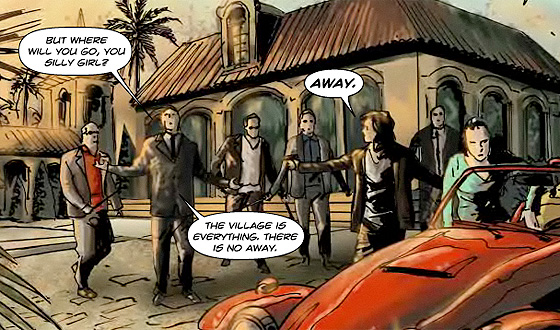You could get lost in that account. Great GIFs!
I guess this is as good a day for this as any.
a lesser man would have been dead hundreds of times over performing what Buster Keaton did.
This tracks.
Modern health regs are the reason most of us are even alive. The good old family farm was deadlier than we like to think.
I think it reflects the modern tendency to substitute acronyms for words-- like “bbq”-- and to invent acronymic etymologies-- like for “fuck”.
I think the most straightforward etymology is from Proto-Indo-European *h₂ewg-, “to increase or enlarge” to Proto-Germanic *aukaną, to Dutch oken, to English with an expanded meaning in New York. Cognate with English eke.
P.S. And the implied shift from “to increase” and “to prosper” to “alright” doesn’t seem any stranger, to me, than the known shift from “to increase” and “to prosper” to “to scrape by.”
I read about this in the 80s. This article goes more in-depth with the newspaper abbreviation meme culture that gave us capital-O-capital-K. It’s really not that weird considering we still do funny print-based abbreviations and misspellings that sometimes cross over into speech and we think nothing of it tbh fam omg lol kek lmfao!!!eleven.
First, at the risk of repeating myself, Modern English speakers often substitute acronyms for words-- like “bbq”-- and invent acronymic etymologies-- like for “fuck”.
So I think it’s much more likely that English okay -> an abbreviation I shall not use -> Oll Korrekt.
Second, if we rule out 20th century derivations due to 19th century use of okay and an abbreviation, then shouldn’t we rule out 19th century derivations due to 4th through 18th century use of 𐌰𐌿𐌺𐌰𐌽, auka, oken, etc. in other Germanic languages?
https://en.wiktionary.org/wiki/Reconstruction:Proto-Germanic/aukaną
Third, it’s not like Dutch words haven’t jumped to English. Especially American English. And Dutch has a good fit.
Fourth, it’s not like other Germanic forms can’t co-exist with English forms with new meanings. Laager and lager and layer.
OK

Apparently Spain is the Land of Many Rabbits. 
Is it true that the rs in Büma and Myanmä don’t represent rhotic consonants, but some kind of variations on the vowels? If so, an American spelling should use something else instead of r.
Like the article says, a lot of these are suspect. The Canada one, near as I can tell, is a misunderstanding of a mistranslation.
I’m a bit dubious of some of these.

Seems legit.
I agree with you about acronyms, which are almost always false etymologies until about the 1950s. But while it doesn’t sound impossible that English picked it up from Dutch, why is it more straightforward to suppose than the usual theories like Wolof or Choctaw?
We do, but we also make them up after the fact. As far as I can work out, bae was just a short form young black people started using, and it was only when it started spreading to white people that they made up explanations like before all else. That the newspaper abbreviation fad might have made up Oll Korrect for a new word actually in use would not be unusual.
English borrowed a lot of other words from Dutch, and had a lot of opportunities to borrow that particular word from Dutch or another Germanic language.
But in the map, they mark it as THE village. When I was in Grade 3, our textbook stated (it even rated an illustration) that Kanata was the actual name of the village Cartier was being shown.
Nowadays it’s more often translated as “village” or “large village”. That still doesn’t get us to THE village.
So, misunderstanding of a mistranslation.